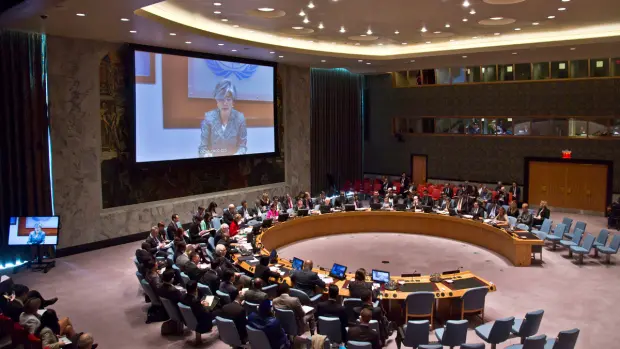More than a decade after the end of Liberia’s last civil war, the United Nations Security Council voted unanimously on Wednesday to lift the remaining sanctions against the West African country, enabling it buy arms on the global market and ushering in a new era of normalcy for a long-brutalized land.
A resolution to rescind the remaining sanctions ended a gradual easing of restrictions on Liberia. The Security Council acted late last year to lift travel bans and asset freezes against several individuals and entities. The Council had earlier lifted the ban on Liberian timber and diamonds.
Liberian warlords had traded in the country’s natural resources for years, turning a land of abundance into one of the worst killing fields of West Africa.
The Council vote was in many ways a vote of confidence in Liberia’s ability to maintain peace. The war ended after Charles G. Taylor, Liberia’s warlord-turned-president, stepped down and left the country in 2003. He was convicted by an international court for war crimes in connection with his role in the conflict in Sierra Leone, Liberia’s neighbor.
The United States, which had pushed for the original array of sanctions against Liberia, used the Wednesday vote as an occasion to argue the case for sanctions as an effective tool — and to say that sanctions need not last forever.
“Just as we must never hesitate to strengthen sanctions and their enforcement if necessary to address threats to international peace and security, we must move expeditiously to wind down and end sanctions when they are no longer serving the purpose or when they have achieved what was sought,” David Pressman, the American alternate representative to the United Nations, said.
Even as the Council voted to end sanctions, two prominent Liberian politicians, including the speaker of the House of Representatives, were accused in a bribery scheme that involved changing a mining law in favor of a British firm interested in an iron ore concession.
(THE NEW YORK TIMES)
 简体中文
简体中文

